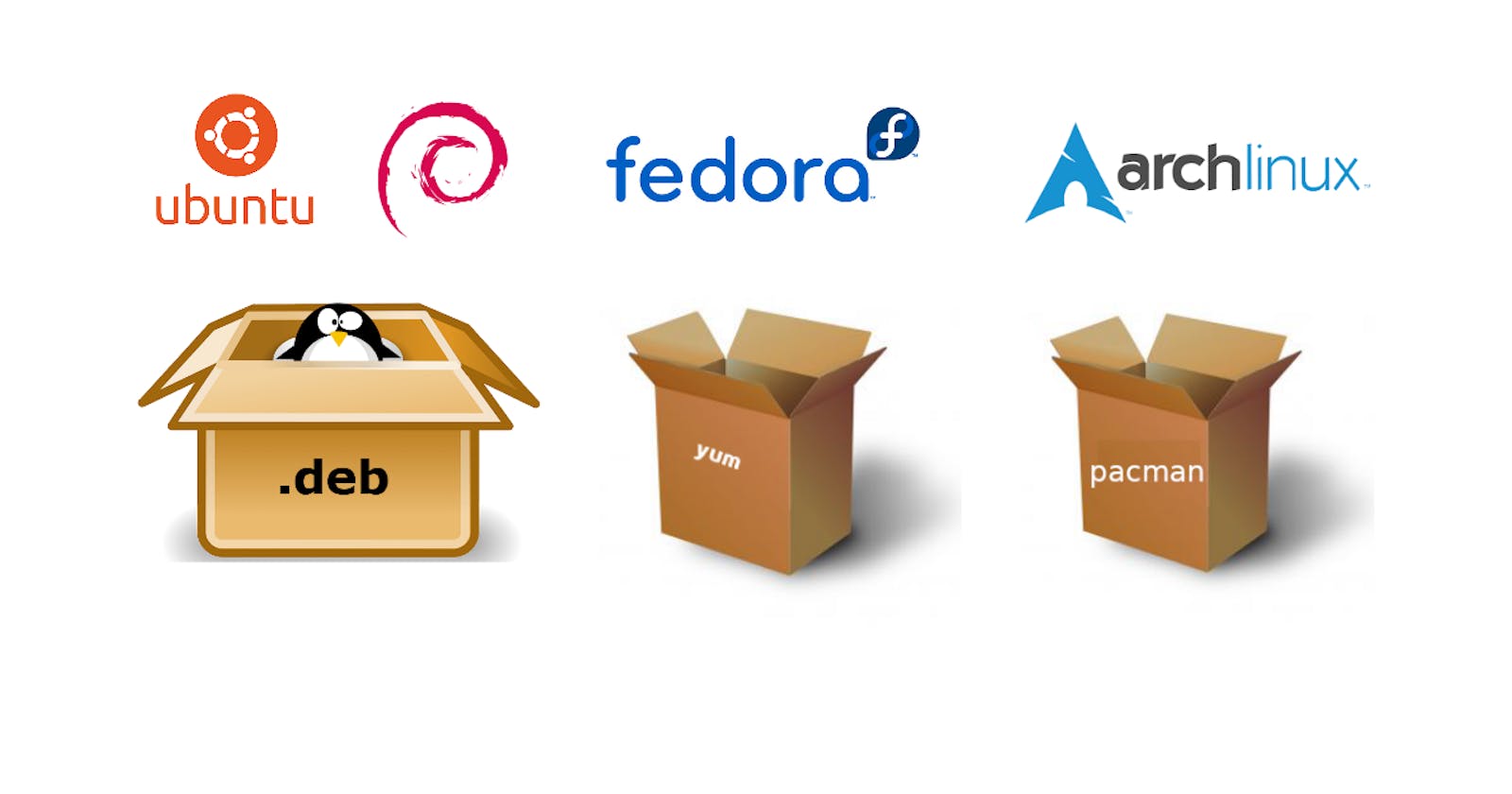Okay, so I'm officially in the world of DevOps. It's all containers and clouds and automation, which is totally awesome! 🤩 But you know what they say, sometimes you've gotta crawl before you can sprint. Right now, I'm crawling through the basics of Linux package management, and let me tell you – it's a whole new world!
What the Heck are Packages?
Imagine software packages like little Lego sets. 🧱 Each package has all the bits and pieces (files, instructions, those little things that ALWAYS get stuck under the couch) you need to make a piece of software work. Package managers are like the awesome Lego instruction booklets – they keep everything organized and tell your system how to put those software Legos together.
Why Do We Need Them?
Honestly, before jumping into DevOps, I thought you just downloaded software and poof, magic happened. 🪄 Turns out that way leads to chaos. Here's why package managers are lifesavers:
Dependencies... the Bane of My Existence. Software often needs other software to run. Package managers figure out all those needy relationships and install everything you need. 👍
Updates? Easy Peasy! New version of your favorite app? Package managers can update it (and its dependencies) without breaking your entire system. 💥🚫
Keeping Things Tidy. Package managers track what's installed where so you can remove stuff cleanly without leaving random bits lying around your system. 🧹
Distro Wars! Debian vs. Red Hat
Get ready for the rumble! In the Linux world, there are two big camps: Debian-based systems (like Ubuntu) and Red Hat-based systems (like CentOS). They each have their favorite package managers:
Debian's Corner:
apt-get: The OG package management tool.dpkg: The low-level workhorse thatapt-getrelies on.synaptic- If you like GUIs, this is your friend!
Red Hat's Corner:
yum: It used to stand for Yellowdog Updater, Modified... which is super random, but hey, it works!dnf: The newer, snazzier version ofyum.rpm: The foundation, similar todpkgin Debian land.
My fumbling Adventures
Alright, confession time. 😅 My first attempts at package management weren't the smoothest. Here's a sample of my newbie mistakes:
# Trying to install something not in the repos... duh!
sudo apt-get install this-super-cool-software
# Result: E: Unable to locate package 😫
# Forgetting about dependencies... and breaking things
sudo apt-get remove some-random-package
# Result: Half my system stopped working 😭
# Updating EVERYTHING without thinking... chaos ensues
sudo apt-get upgrade
# Result: Weird version conflicts galore 🤯
Learning from the Pain
But hey, you live, you learn, and you slowly become less of a newbie! Here's what I've picked up along the way:
Know Your Repos: Repositories are like giant online stores for software packages. Your distro comes with default repos, but you can add more for extra goodies.
Search Before You Install: Always check if a package exists in your repos. Tools like
apt-cache searchare your best friends. 🔎Read Up on Dependencies: Before removing anything, check what depends on it. A quick web search can save you major headaches.
Updates: Test First! If you can, test updates on a non-critical system before rolling them out everywhere. 🧪
Package Management Powers: A Revelations ✨
Okay, so after my initial fumbling, I started to get the hang of these package manager thingies. And let me tell you, they open up a world of possibilities! Here's a few things that made me go, "Whoa, this is cool!":
Finding the Weird and Wonderful: Turns out, repos are packed with all sorts of niche software! I found command-line games 🕹️, retro emulators, text editors from the dawn of time... it's like a treasure hunt.
Building Stuff from Source: Sometimes you need software that's not neatly packaged. That's where tools like
makeandconfigurecome in. It's more involved, but there's something satisfying about building software like a real Linux pro. 💪Customizing Your System: Want a super lightweight desktop? A bleeding-edge version of your favorite app? Package managers can help you tweak your system to perfection.
But Wait, There's More... Package Managers vs. Other Options
I started wondering: With things like AppImages, Snaps, and Flatpaks out there, do we even NEED traditional package managers? Turns out, it's complicated:
AppImages, Snaps, Flatpaks: These bundle ALL dependencies into one convenient package. Great for portability, but they can bloat your system and you lose some of the update-neatness that package managers provide.
Manual Installation: The old-school way – download a tarball, compile it... It gives you ultimate control, but it's a recipe for dependency hell and headaches down the line. 🤕
Honestly, it's probably about using the right tool for the job. Package managers are the solid foundation, but sometimes those other options come in handy.
A Word of Caution ⚠️
With great package-management power comes great responsibility! A few things to keep in mind:
Don't Mess with Core Packages: Removing something critical seems like a good idea at 2 AM, but trust me... it's not. The Linux gods will be displeased.
PPAs: Proceed with Caution: PPAs (Personal Package Archives) offer new software, but they can be less stable. Use with care!
Conflicting Packages: Sometimes packages from different repos just don't play nice. It's a troubleshooting adventure you might not be ready for. 😅
The Newbie's Quest
My Linux package management journey is far from over. There's still so much to learn, so many mistakes to be made (and hopefully learned from!). But that's the beauty of being a newbie, right? You get to explore, experiment, and occasionally break stuff – all in the name of progress! 💥🔧
If you're venturing down this path too, let me know what you stumble upon – let's share the newbie experience. 😁

